NATO CANNOT defend Europe against Russia without the US, the alliance’s eastern leaders warn, weeks before Trump enters the White House
The leaders of three NATO countries bordering Russia have warned that the defense bloc is simply not ready to fight Vladimir Putin’s forces without the US.
The leaders of Latvia, Estonia and Finland have urged the alliance to stop “endless debate” over how to deal with Russia in the wake of Donald Trump’s immediate return to the White House.
The three countries are the only NATO members that border Russia. Latvia also borders Belarus, whose leader Aleksandr Lukashenko has long been an ally of Putin.
‘We are not ready for this. That is perfectly clear. We cannot simply continue to hope for a situation where the US remains closely involved in Europe,” Latvian President Edgars Rinkevics told the Independent.
“We need to increase our defense capabilities because of the threat from Russia and Russia’s inability to be a democracy and operate in a rules-based world,” Estonian Prime Minister Kristen Michal added.
Earlier this week, Trump told his European allies that he will require NATO member states to increase their defense spending to 5% of GDP, more than double the current target of 2%.
Latvia, Finland and Estonia have among the highest defense spenders in the bloc relative to their GDP, spending 3.15%, 2.41% and 3.43% of their GDP on combat capabilities respectively.
While the share of countries spending above target has risen dramatically over the past year, experts have warned that the number of countries not paying their fair share is still too low.
Donald Trump (pictured) told his European allies that he will require NATO member states to increase their defense spending to 5% of GDP
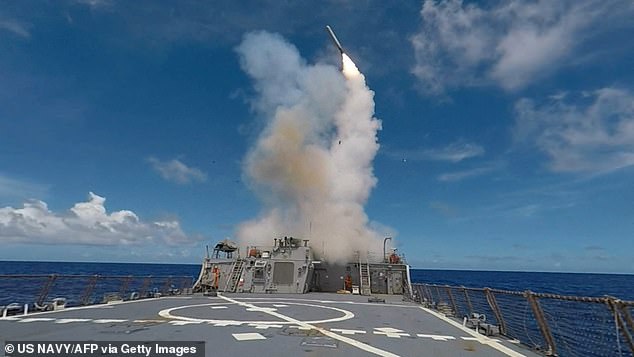
A Tomahawk missile is launched from the Arleigh Burke-class guided missile destroyer USS Stethem during a training exercise
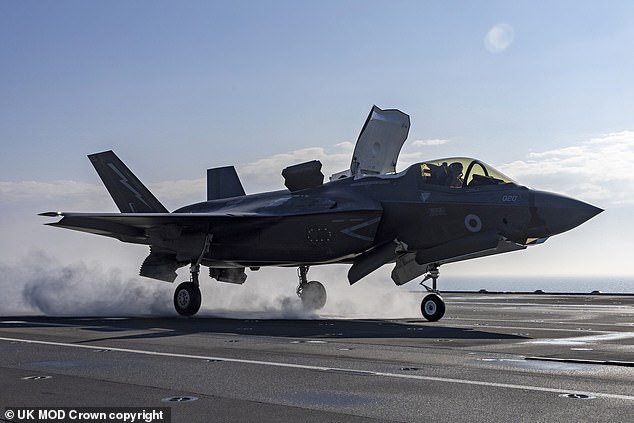
Pictured: An F-35B lands aboard HMS Queen Elizabeth
Russia will spend 6.3% of its GDP on defense next year.
Alexander Stubb, the president of Finland, praised the “pressure” Trump was putting on Europe, though he urged the president-elect to focus “more on capabilities than on spending.”
“Everyone needs to correct their defense deficit,” he added.
Despite Trump’s aggressive stance against the defense bloc, Stubb said he did not believe the Republican would abandon it.
“I think it is in the vested interest of the United States to remain involved (in Europe). Regardless, I believe that values-based alliances will last much longer than interest-based alliances,” he said.
Finland, along with Sweden, applied to become a NATO member in May 2022, in the wake of Russia’s invasion of Ukraine, which ended decades of military neutrality.
The country’s army is one of the largest in Europe and has 280,000 troops who can be mobilized and armed to the teeth within a week, Stubb said.
Just a few months before the country applied for membership of NATO, Finland spent an estimated £7.5 billion on the purchase of 64 F-35A fighter jets to strengthen its air force.
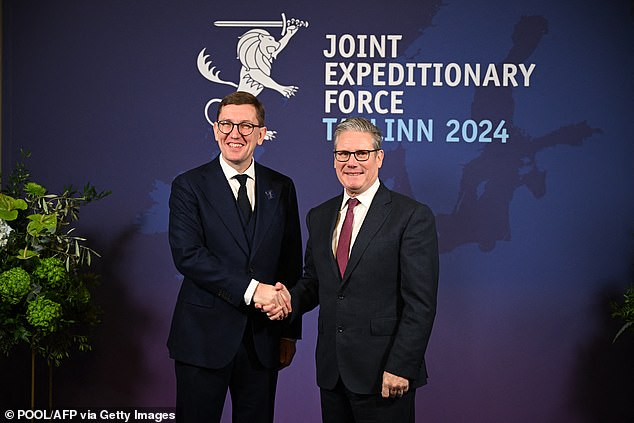
Estonian Prime Minister Kristen Michal (L) and British Prime Minister Keir Starmer shake hands on December 17, 2024 in Tallinn, Estonia
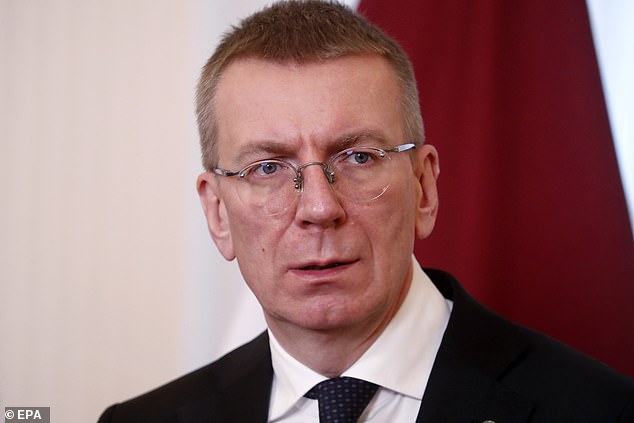
Latvian President Edgars Rinkevics (photo) attends a joint press conference with the Slovak President after their meeting in Riga, Latvia, December 4, 2024
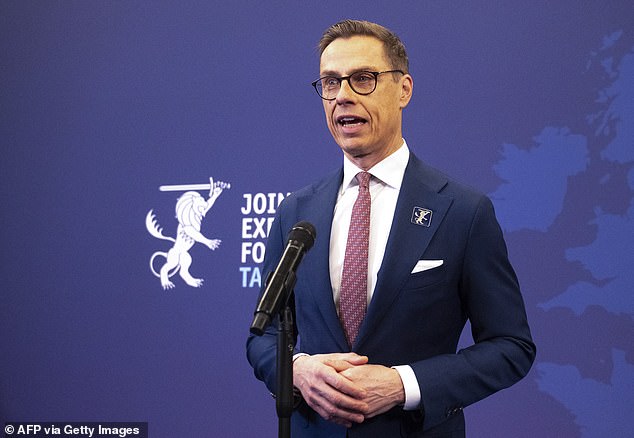
Finnish President Alexander Stubb makes a statement ahead of the talks on December 17, 2024 in Tallinn, Estonia
Stubb said of his country’s recent military purchases and the growth of its army: ‘We don’t have this because we’re worried about Stockholm or London. We have this because we are worried about Moscow.”
The stark warnings come after Keir Starmer and Volodymyr Zelensky agreed on “the importance of refining” the UK’s training offering for the Ukrainian armed forces to “further strengthen Ukraine’s capabilities on the battlefield”, Number 10 said.
The prime minister and the Ukrainian president spoke Monday morning and also agreed that what happens in the conflict in the coming months “is of interest to NATO.”
According to a readout of Number 10’s call on Monday, ‘President Zelenskiy reflected on the situation on the front line in Ukraine and the need to ensure that Ukraine could degrade Russia’s armed forces for the long term.
“What happens in Ukraine in the coming weeks and months matters to Europe and NATO, and it was crucial that President Putin’s ambitions in Ukraine fail, the leaders agreed.”
The lecture added: “The leaders discussed Operation Interflex, the British-led training mission for Ukrainian recruits, and agreed on the importance of refining their offerings to further strengthen Ukraine’s capabilities on the battlefield.”
It comes amid speculation that Britain could consider sending troops to Ukraine to help train its armed forces.
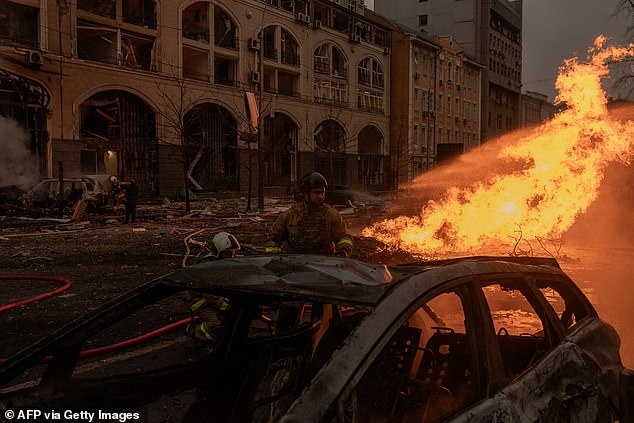
Ukrainian rescuers try to extinguish a fire at the site of a rocket attack in Kiev on December 20, 2024
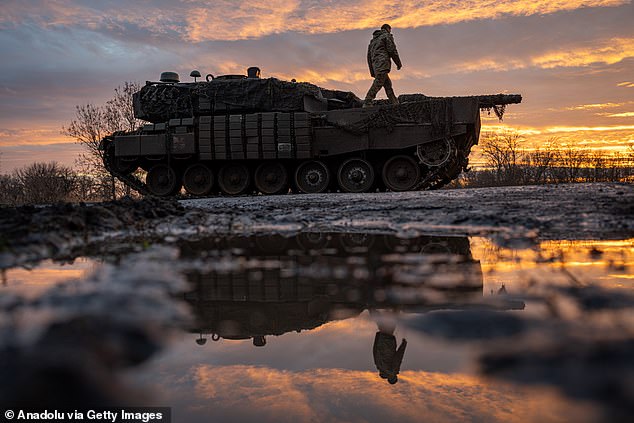
Ukrainian soldiers from the 33rd Brigade pilot a Leopard battle tank towards Kurahove, Ukraine as the war between Russia and Ukraine continues on December 19, 2024
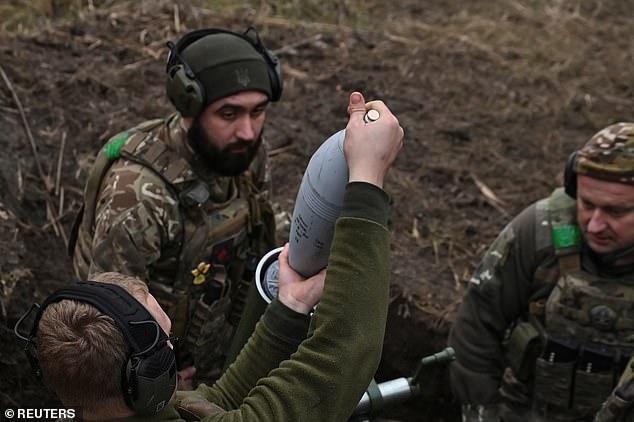
Members of the Consolidated Brigade ‘Khyzhak’ (Predator) of the Ukrainian Patrol Police place a grenade in a mortar while firing at Russian troops at their position in a front line near the city of Toretsk, amid the Russian attack on Ukraine, in Donetsk region , Ukraine December 20, 2024
Last week, Defense Secretary John Healey said it was a “critical period” for Ukraine and promised Britain would “step up” aid.
Speaking to LBC during a visit to the Ukrainian capital Kiev, Mr Healey said: ‘This is undoubtedly a critical period for Ukraine.
‘The Russians are putting pressure on Ukraine on the front line, but Putin himself is showing signs of weakness. He calls on North Korean troops to strengthen his own army, moves on from Assad and fails to defend his own positions in Syria.”
He added: “I am here discussing with the Ukrainians and the Ukrainian Defense Minister our joint plan for 2025 and I am here to say, ‘Look, Britain is further increasing the military assistance that we will provide, and also even further. the UK international leadership to try to coordinate allies so that we can support Ukraine in 2025 and beyond.”
The call comes after Sir Keir’s visit to last week’s meeting of the Joint Expeditionary Force (JEF), a military coalition of several European countries, where he said that ‘Ukraine needs every opportunity it can get’.
